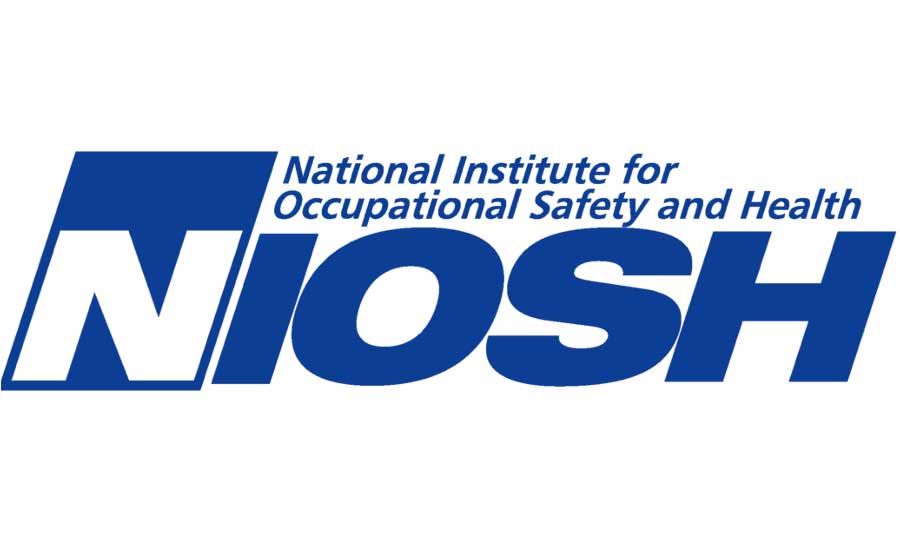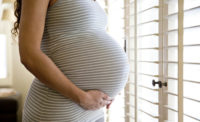NIOSH research update
Are face masks safe during pregnancy?

Worldwide, millions of pregnant women wear face coverings at work, including the widely used N95 respirator with filtering face pieces or masks. The N95 respirator restricts normal airflow, so a woman may have to breathe harder while wearing it. National Institute for Occupational Safety and Health (NIOSH) researchers are working to answer an important question: Does an N95 filtering face piece put more physical stress on a pregnant woman who wears it?
NIOSH researchers studied whether pregnant women who wear an N95 respirator have different health effects than women who are not pregnant. Researchers took steps to ensure that the tests did not themselves create a risk for harm. They monitored 16 pregnant and 16 non-pregnant voluntary participants for heart rate, blood pressure, fetal heart rate, and other indicators of heart and lung function. The research included 1 hour of alternating sitting, standing, and moderate exercise on a stationary bicycle, both with and without a filtering facepiece respirator mask. All study participants were healthy non-smokers.
For the two groups, researchers observed no noteworthy differences in how the hearts and lungs of the participants performed. However, both pregnant and non-pregnant women wearing the respirator mask had a mild—but significant—increase in the heart’s resting, or diastolic, blood pressure. The temporary increase did not affect heart and lung function, so it is unlikely to cause health problems in healthy women, the researchers said.
More research could help determine whether pregnant women with pregnancy-related high blood pressure and those with chronic high blood pressure can safely wear face coverings. Additional studies also should examine whether comparable indicators from the 1-hour tests occur over a longer period.
To read the full journal article, go to Effect of External Airflow Resistive Load on Postural and Exercise-associated Cardiovascular and Pulmonary Responses in Pregnancy: a Case Control Study.
Looking for a reprint of this article?
From high-res PDFs to custom plaques, order your copy today!







